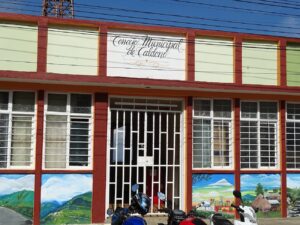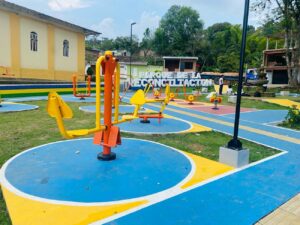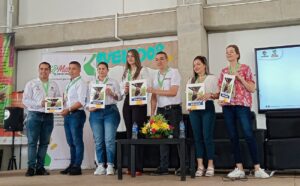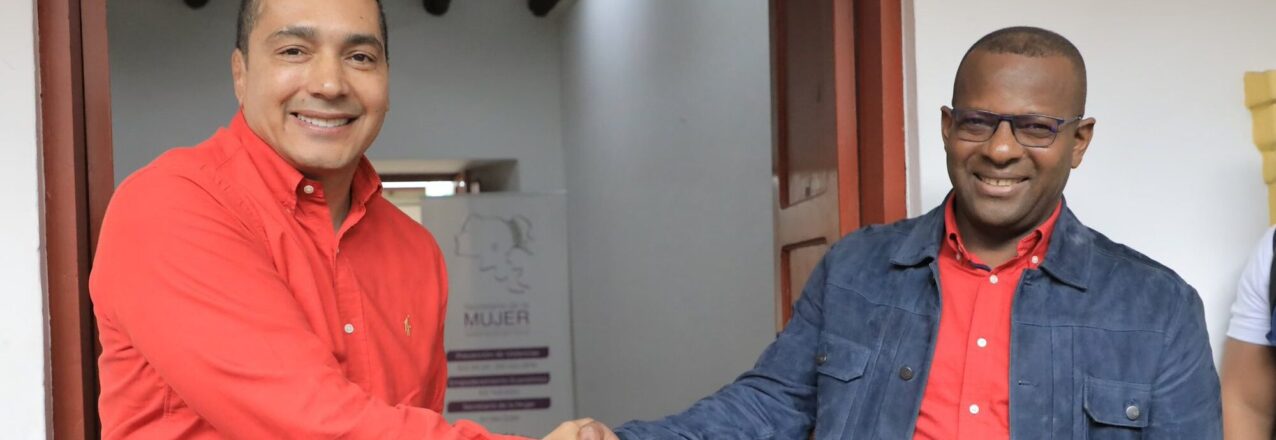Cauca’s Regional Land Office is supporting eight municipalities with land formalization and ensuring continuity with the incoming administration.
 Nobody in Caldono’s Planning Department was surprised to learn that half of City Hall was sitting on a property with no land title. In the municipality of Caldono, six out of 10 parcels are informally owned, and this also applies to schools, health clinics, and municipal assets.
Nobody in Caldono’s Planning Department was surprised to learn that half of City Hall was sitting on a property with no land title. In the municipality of Caldono, six out of 10 parcels are informally owned, and this also applies to schools, health clinics, and municipal assets.
“We don´t have a land title for the Municipal Council Meeting Hall. We have a whole list of municipal properties that are informal: schools, community centers, recreation complexes, basically all the properties that are most important to the community’s wellbeing,” explains Ivan Melo, public administrator in Caldono.
Caldono is a small municipality in the mountains of Northern Cauca and does not have the resources to finance a full-fledged land office that can attend to its everyday property needs. The creation of Cauca’s Regional Land Office (RLO) has given Caldono a valuable opportunity to review its assets, create a plan to legalize its properties, and reach the public with information about land formalization and property rights.
Cauca’s RLO is based in Popayán, the departmental capital, and supports eight municipalities in Northern Cauca. The office regularly sends a small group of topographers and land experts to isolated municipalities to work with local leaders and focus on land formalization, public outreach, and institutional coordination.
So far, the Regional Land Office has helped Caldono title 100 private parcels in urban areas and 13 public properties, including the municipal government building, schools, and recreation facilities.

Through its support, the municipality has already leveraged 410 million pesos (USD $100,000) in investments for schools and parks. One project includes the improvement of Caldono’s Reconciliation Park, a public space that allows residents to reflect on building peace following generations of conflict and violence.
“For years, the Reconciliation Park wasn’t suitable for children to run and play. Thanks to the formalization of the land, not only will we have the deed in the name of the municipality, but it will become a place for all of the community to come and enjoy,” says Melo.
Ensuring a Future

In 2024, Cauca’s new governor, Octavio Guzmán, took over. He inherited a functioning land office that titled over 1,150 parcels in eight municipalities in its first year.
Today, the governor will lean on the recently created Departmental Land Working Group, a cross-cutting body that includes representatives from national land entities as well as Cauca’s Secretaries of Women Affairs and Agriculture.
“All across Cauca we have many poor indigenous and Afro-Colombian families living on small parcels that do not have land deeds and who cannot access a line of credit. The Regional Land Office is the place where we can start strengthening land formalization and facilitate coordination with the national government on land issues and make it possible to provide them with legal security and stability,” explains incoming Governor, Octavio Guzmán.
The innovative concept of a Regional Land Office was first supported by USAID in the department of Meta, and has found success in other departments like Sucre and Bolívar. The RLO strategy has planted seeds for regional-level leadership in land administration and created a conduit of support for secure land rights.
“The Regional Land Office allows us to organize property in rural territories and to provide security and legal stability to our farmers, our indigenous communities and our Afro-Colombian people.” – Octavio Guzmán, current Cauca Governor


